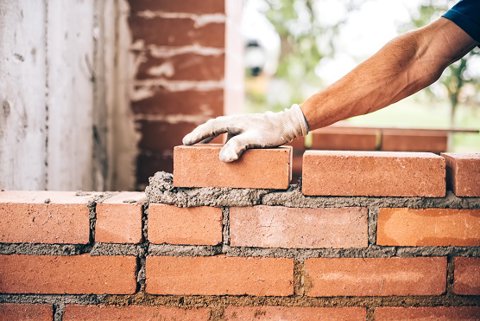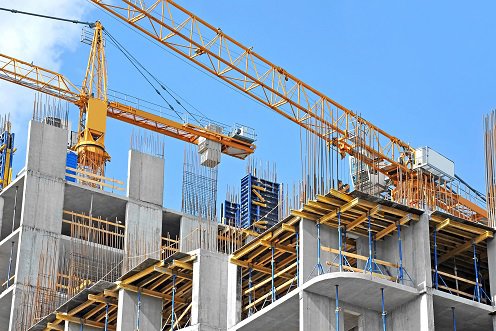Your Rights as a Worker
An employer has a duty to all its employees on their construction sites to keep them safe. Underlying all safety procedures are four important factors: skills, knowledge, training, and experience. Workers must only carry out construction work if they are properly trained and qualified. If workers have not completed the required training, they must be provided with it before starting work.
It is the construction worker’s responsibility to ensure they are fit to work, and the contractor’s responsibility to ensure that the site is safe for its employees. They must make sure that all walkways are appropriately guarded. If scaffolding is in place, the employer must ensure that there is a safe access/egress route from the site.
Following procedure and safety rules help prevent injury, but accidents do still happen from time to time. Accidents can occur at any stage of a construction project and can be big or small. Slips, trips, and falls from height are some of the most common accidents in construction. Perhaps a ladder has not been secured correctly, leading to it coming loose and causing a fall.
If this happens to you, making a claim for your injuries may be the last thing on your mind. However, when you come to terms with your injuries, it may become apparent that there is a long road to recovery ahead of you. Recovering often means time off work without pay, which would cause further setbacks in your life. In this position, you may reconsider and decide to make a personal injury claim.
Your Safety Rights
Your employer is responsible for your health and safety whilst you are on a construction or building site. Whether or not they are your main contractor, they are required by law to keep you reasonably safe whilst you are in their employment. All construction workers have the right to work on sites where they do not get injured or ill. There are protocols in place to ensure this state that workers must work with safe machinery, be protected from toxic chemicals, and have the ability to report health and safety incidents at work.
Safety & Protective Equipment
Whilst working in construction your employer has a duty to keep you safe. This includes providing you with personal protective equipment. The type of personal protective equipment (PPE) may vary from site to site but would generally consist of high visibility clothing, steel toe capped boots, and hard hats.
Dependent on the nature of your work, you may be provided with additional PPE such as:
- knee pads – to protect knees and shins when crawling
- safety spectacles – to protect eyes from chemicals, dust, gas, and radiation
- ear defenders – to protect ears from excessive noise caused by power tools
- face masks – to protect lungs from contaminants that can be inhaled
- back and neck supports – to support the neck and spine
For PPE to properly protect you, it must be the right fit. The equipment can itself be a safety hazard if harnesses are too big, overalls are too long, or hats are too small.

Common Types of Construction Accidents
Falls from Height
The most common type of work accident is when a worker falls from a ladder or scaffolding. Falling from height can affect the whole body, causing injuries such as broken bones and head and back injuries. Such an intense accident can require a long recovery period while the body heals.
Falling Objects
One risk of working on a construction site is the possibility that an object is dropped onto you from above without any warning. These accidents often happen so quickly that you are unable to move out of the way and avoid it.
A falling object can cause an injury which makes it impossible for you to continue working. Injuries can vary from minor cuts and bruises to serious crush injuries and even head or brain injuries.
Tripping Hazards
In the construction industry, hazards in the workplace are numerous.
One particular hazard to consider is the risk of tripping over cables or falling into holes in the ground that have been created as part of the construction/building process.
Tripping can also be caused by tools left scattered across the floor—so it is crucial that you keep your working environment safe and free of clutter.
Defective Equipment
If your employer provides you with power tools to allow you to complete your job, they are responsible for keeping the equipment in a good working order.
They also need to carry out repairs to the equipment should it become defective. In the event that the work equipment becomes defective and, as a result, causes you injury your employer would be liable for the defective equipment. As they are responsible for ensuring equipment is in good working order, they would also be liable to compensate you for your injuries.
Construction Vehicle Accidents
Whilst working in the construction industry, provision must be made to ensure vehicles are operated safely. Vehicles should be regularly checked and serviced to make sure they remain fit for purpose.
If the construction site is situated in a public place near to roads and crossings, the employer must ensure that pedestrians can pass through in a safe manner. If pedestrians were to be injured by construction vehicles, there is no doubt that the employer would be at fault.
Excessive Noise and/or Vibrating Tool Hazards
Many roles in the construction industry require the use of loud tools such as drills, grinders, and jackhammers. Noise and vibration coming from tools are a cause for concern for construction workers. Excessive noise from power tools can cause hearing loss or problems such as tinnitus (ringing in the ears).
Your employer has a duty to check for excessive noise and where possible to reduce the level of noise or the length of time you are exposed to excessive noise whilst on site. If your employer cannot manage the noise, they are required to provide protective equipment such as ear defenders. They are also responsible for ensuring workers wear the provided personal protective equipment (PPE).
The vibration from power tools can cause personal injuries such as nerve and tendon damage to the hands, arms, and wrists. If not treated early, exposure to vibration can cause ‘hand arm vibration syndrome’. This condition can be extremely debilitating, causing a reduction and sometimes total loss of grip strength.
If you believe you are experiencing symptoms from the use of vibrating power tools, it is important that you seek early medical advice. Getting medical intervention at the right time can reduce your symptoms of ‘hand arm vibration syndrome’.

Exposure to Hazardous Substances
Working in construction exposes you to a number of hazardous substances that can cause ill health.
Hazardous substances can come in the following forms:
- solids – such as dust, fibres, smoke, fumes
- liquids - such as fine sprays, mists, aerosols such as spray paint
- vapours – such as solvent vapour
- gases - such as carbon monoxide or engine exhaust gases
- micro-organisms - such as bacteria, viruses, and fungi
As chemicals are used frequently in the construction industry, they must be handled with care. Contact with chemicals or irritants can occur either through inhaling, by skin contact, swallowing, exposure to the eyes, or skin puncture.
Some of these irritants can have devastating consequences on your health and life, causing health problems that affect the lungs, throat, eyes, and skin.
How we can help
If you think that any of the issues discussed in this article affect you, please contact one of our Personal Injury Lawyers for a free consultation.
As a Legal 500 Leading Firm for 2023, we are also rated ‘Excellent’ on Trustpilot. We specialise in accident at work claims and can help you in receiving the support you deserve following your accident at work.
Our team of expert, compassionate accident at work solicitors are available to help you access the best treatment for your injury or illness. We work with world-class clinicians, including doctors, nurses, occupational therapists, cosmetic surgeons, physiotherapists, and prosthetics experts.
Simpson Millar are authorised by the Solicitors Regulation Authority (SRA), so you can rest assured that your personal injury claim is in safe hands.



